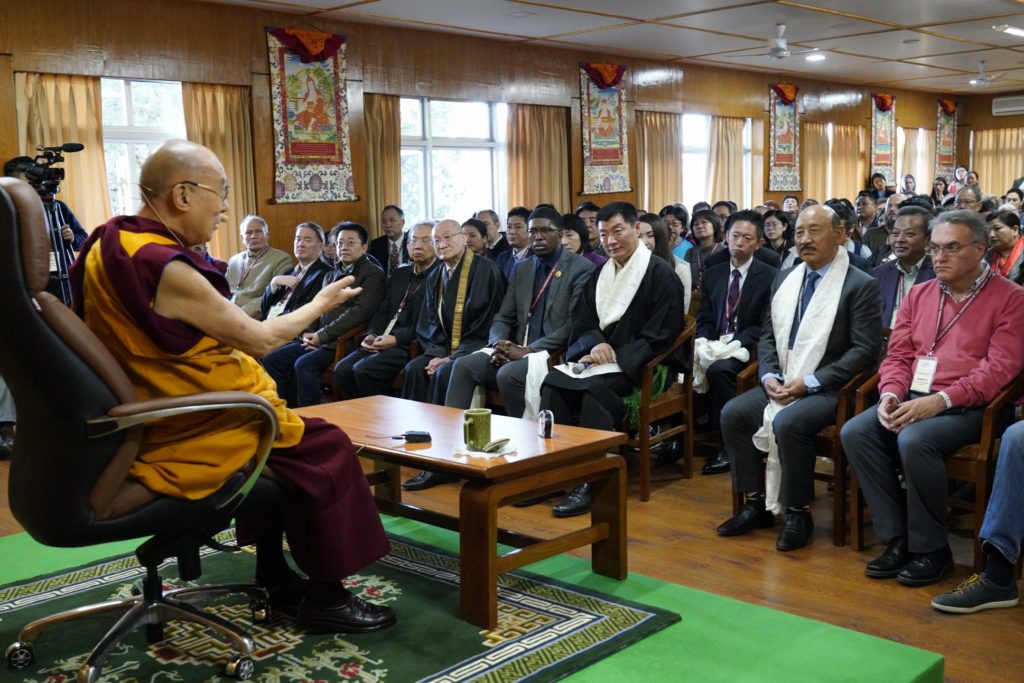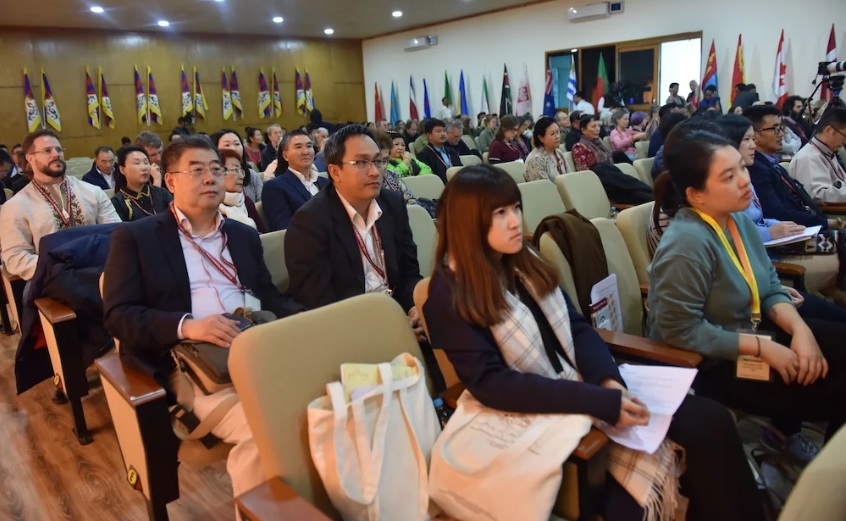
Photo: tibet.net
180 delegates from 42 countries worldwide gathered in Dharamshala for the three-day Tibet Support Groups Conference convened by the Central Tibetan Administration’s Department of Information.
The delegates received an audience with His Holiness the Dalai Lama who said that the Communist Party’s strategy for Tibet has repeatedly failed in recent years; he described their policies as “unrealistic”’ and ethically wrong and said that the system of democracy set up by Tibetans in exile is something that the government of China could learn from and imbibe. His Holiness explained his four commitments—promotion of human values, promotion of religious harmony; preservation of the Tibetan language, culture and Nalanda Buddhist heritage, as well as the protection of Tibet’s natural environment and revival of ancient Indian knowledge—which reflect his altruistic vision for the future.
The conference participants fully endorsed His Holiness’s conviction regarding the profoundly important contribution the Tibetan people and culture can make to human development, and are therefore persuaded that support for the Tibetan cause is support for humanity as a whole.
Sikyong Lobsang Sangay, President of the Tibetan Government-in-Exile, addressed the meeting, followed by the Speaker of the Tibetan Parliament in Exile. The conference heard speakers from Tibet, Hong Kong, East Turkestan, Southern Mongolia and Taiwan, as well as from India, South Africa, the United Kingdom, Australia, China and the United States, all of whom shared a sense of optimism and actively participated in the proceedings of the conference.

The conference has published a declaration which state, “We deplore the fear displayed by many governments to stand up to the Peoples Republic of China in the face of decades of its gross and systematic violation of fundamental human rights and freedoms in Tibet and in East Turkestan (Ch. Xinjiang) as well as in Southern Mongolia (Inner Mongolia), and, currently, in the face of sustained protests, also in Hong Kong.”
The declaration continued, “We call on the Chinese government to resume the dialogue, which occurred on the basis of the Middle Way Approach, and engage in earnest negotiations without delay, and we urge the UN and members of the international community to persuade the Chinese government to do so.” Regarding Tibet’s environment in the face of the current climate crisis: “Given the critical role of the Tibetan Plateau as the Third Pole, in global climate change we commit to insert Tibet, which is at the frontline of the climate crisis, into the debate of this most urgent issue of our time.”
Reincarnation was another issue addressed: “We insist that all decisions regarding the reincarnation of the 14th Dalai Lama are the exclusive responsibility of His Holiness the Dalai Lama and his Gaden Phodrang Trust. Any interference in this process by the PRC authorities and any attempt at selecting or appointing a Dalai Lama by the Chinese government will have no legitimacy and should be condemned and subjected to sanctions by the international community.

“The struggle for Tibetan freedom is a struggle for justice, truth, and freedom. We are committed to continuing the work until the conflict is resolved to the satisfaction of the Tibetan people. As long as the Tibetan people remains under alien occupation, subjugation and exploitation, and is therefore denied the exercise of its right to self-determination, the Tibetan struggle for freedom and justice is everyone’s struggle for freedom and justice. And so, just as we call for solidarity with the people of Tibet, so too we express solidarity with all who suffer under the PRC’s repressive policies, indeed, all other peoples deprived of their freedom, for no one can be truly free so long as others are oppressed.”
The International Tibet Network, a global coalition of Tibet-related non-government organisations whose purpose is to maximise the effectiveness of the worldwide Tibet movement, participated in the conference and held “fringe” activities before and after the main conference, with informal sessions on topics including digital fundraising, online security, involving and managing volunteers and liaison with other organisations. Participants agreed they had been inspired by the conference and the enthusiasm shown by the people gathered there, the opportunity it provided to share experiences and knowledge and to meet other people involved in the movement from all over the world.




 Print
Print Email
Email